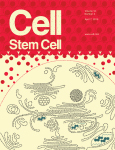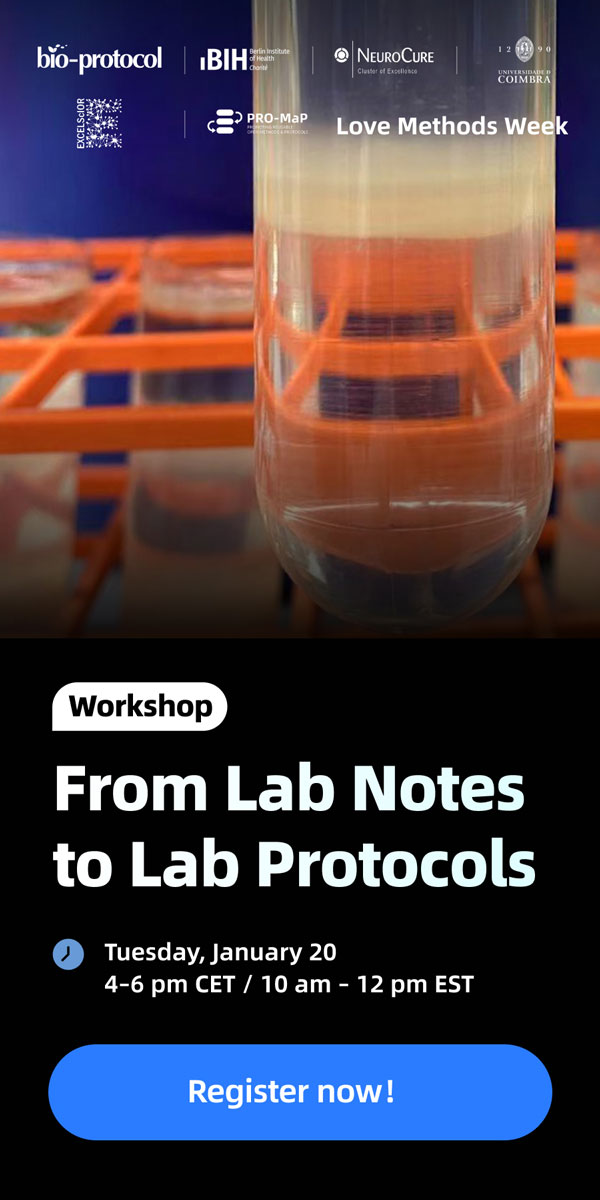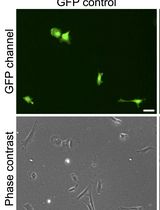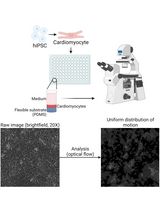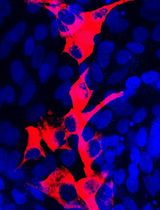- EN - English
- CN - 中文
Reprogram Murine Epiblast Stem Cells by Epigenetic Inhibitors
通过表观遗传抑制剂重新编程鼠外胚层干细胞
发布: 2017年03月05日第7卷第5期 DOI: 10.21769/BioProtoc.2168 浏览次数: 7386
评审: Nicoletta CordaniZhen ShiAnonymous reviewer(s)
Abstract
Pluripotent stem cells in the naïve state are highly useful in regenerative medicine and tissue engineering. A robust reprogramming of the primed murine Epiblast Stem Cells (EpiSCs) to naïve pluripotency is feasible via chemical-only approach. This protocol described a method to reprogram murine EpiSCs by MM-401 treatment, which blocks histone H3K4 methylation by MLL1/KMT2A.
Keywords: Naïve pluripotency (原始多能)Background
Previous protocols on EpiSC reprogramming depended on the genetic manipulations of transcriptional factors or chemical inhibition of the signaling pathways, albeit with varying efficiency and duration. Based on a recent mechanistic study that links the MLL1 complex to the naïve state, this protocol provides a straightforward and robust method to restore naïve pluripotency from EpiSCs via targeting MLL1 mediated H3K4 methylation and subsequent transcription regulation. The reprogramming efficiency is significantly higher than previous published method, achieving 50% conversion rate in two weeks.
Materials and Reagents
- Tissue culture plate, 24 well (Corning, Falcon®, catalog number: 353047 )
- 15 ml conical tube (Corning, Falcon®, catalog number: 352196 )
- MEF feeder cells (University of Michigan, Transgenic Animal Model Core, https://www.med.umich.edu/tamc/list.html#reagents)
- 0.2% gelatin solution (Sigma-Aldrich, catalog number: G1890 )
- PBS
- Collagenase type IV (Thermo Fisher Scientific, GibcoTM, catalog number: 17104-019 )
- 0.05% trypsin (Thermo Fisher Scientific, GibcoTM, catalog number: 25300-054 )
- The VectorTM alkaline phosphatase (AP) staining kit (Vector Laboratories, catalog number: SK-5100 )
- Dulbecco’s modified Eagle medium (DMEM) (Thermo Fisher Scientific, GibcoTM, catalog number: 11995-065 )
- Fetal bovine serum (FBS) (Atlas Biologicals, catalog number: F-0500-D )
- L-glutamine (200 mM) (Thermo Fisher Scientific, GibcoTM, catalog number: 25030-081 )
- 100x non-essential amino acids (Thermo Fisher Scientific, GibcoTM, catalog number: 11140-050 )
- 100x sodium pyruvate (Thermo Fisher Scientific, GibcoTM, catalog number: 11360-070 )
- 2-mercaptoethanol (Sigma-Aldrich, catalog number: M7522 )
Note: This product has been discontinued. - KnockOutTM D-MEM (Thermo Fisher Scientific, GibcoTM, catalog number: 10829018 )
- KnockOutTM serum replacement (KSR) (Thermo Fisher Scientific, GibcoTM, catalog number: 10828028 )
- Glutamax (Thermo Fisher Scientific, GibcoTM, catalog number: 35050061 )
- Fibroblast growth factor basic (FGF2), human recombinant (R&D Systems, catalog number: 233-FB )
- ESGRO® leukemia inhibitory factor (LIF) (EMD Millipore, catalog number: ESG1107 )
- MM-401
- DMSO
- Mouse embryonic fibroblasts (MEFs) culture medium (see Recipes)
- EpiSCs culture medium (see Recipes)
- Embryonic stem cells (ESCs) culture medium (see Recipes)
- 100 mM MM-401 (see Recipes)
- MM-401 reversion medium (see Recipes)
- MM-401 maintenance medium (see Recipes)
Equipment
- 1 ml pipette
- Tissue culture incubator (IsotempTM Microbiological Incubator) (Fisher Scientific, model: Fisher ScientificTM IsotempcatalogTM Microbiological Incubator, catalog number: S28670 ), humidified, 37 °C and 5% CO2 in air
- Stereomicroscope (Olympus, model: DP73 )
- Centrifuge (Eppendorf, model: 5810 R ; Swing-bucket rotor: Eppendorf, model: A-4-81 )
Procedure
文章信息
版权信息
© 2017 The Authors; exclusive licensee Bio-protocol LLC.
如何引用
Zhang, H. and Dou, Y. (2017). Reprogram Murine Epiblast Stem Cells by Epigenetic Inhibitors. Bio-protocol 7(5): e2168. DOI: 10.21769/BioProtoc.2168.
分类
干细胞 > 多能干细胞 > 细胞诱导
干细胞 > 胚胎干细胞 > 维持和分化
细胞生物学 > 细胞分离和培养 > 细胞分化
您对这篇实验方法有问题吗?
在此处发布您的问题,我们将邀请本文作者来回答。同时,我们会将您的问题发布到Bio-protocol Exchange,以便寻求社区成员的帮助。
Share
Bluesky
X
Copy link


